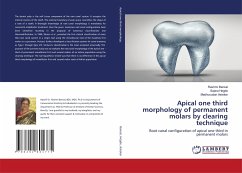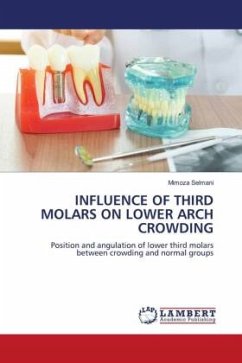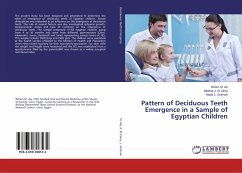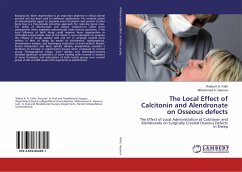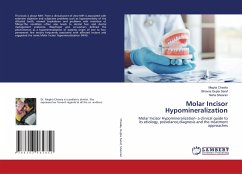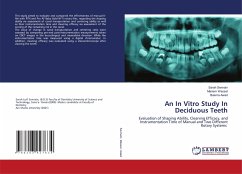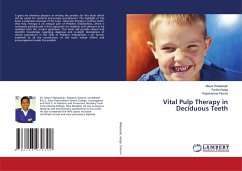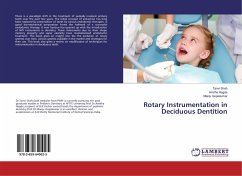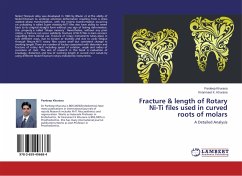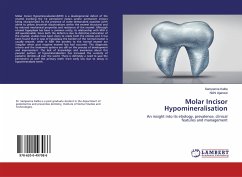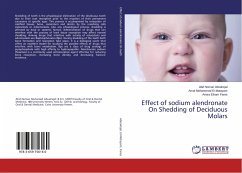
Effect of sodium alendronate On Shedding of Deciduous Molars
Versandkostenfrei!
Versandfertig in 6-10 Tagen
47,99 €
inkl. MwSt.

PAYBACK Punkte
24 °P sammeln!
Shedding of teeth is the physiological elimination of the deciduous teeth due to their root resorption prior to the eruption of their permanent successors at specific ages. This process is accompanied by resorption of calcified tissues; bone, cementum and dentin by the resorbing cells osteoclasts or odontoclasts. Like any physiological process, shedding is affected by local or systemic factors. Administration of drugs that can interfere with the process of hard tissue resorption may affect normal shedding. Among drugs that interfere with activity of osteoclasts and odontoclasts are Bisphosphon...
Shedding of teeth is the physiological elimination of the deciduous teeth due to their root resorption prior to the eruption of their permanent successors at specific ages. This process is accompanied by resorption of calcified tissues; bone, cementum and dentin by the resorbing cells osteoclasts or odontoclasts. Like any physiological process, shedding is affected by local or systemic factors. Administration of drugs that can interfere with the process of hard tissue resorption may affect normal shedding. Among drugs that interfere with activity of osteoclasts and odontoclasts are Bisphosphonates (Bps). During shedding of the teeth both bone formation and resorption take place, it is a biological event that offers an excellent model for studying the possible effects of drugs that interfere with bone metabolism. Bps are a class of drug analogs of pyrophosphate with high affinity to hydroxyapatite. Alendronate sodium (Fosamax) is a commonly used antiresorptive agent effective for reducing bone resorption, increasing bone density, and decreasing fracture incidence.



